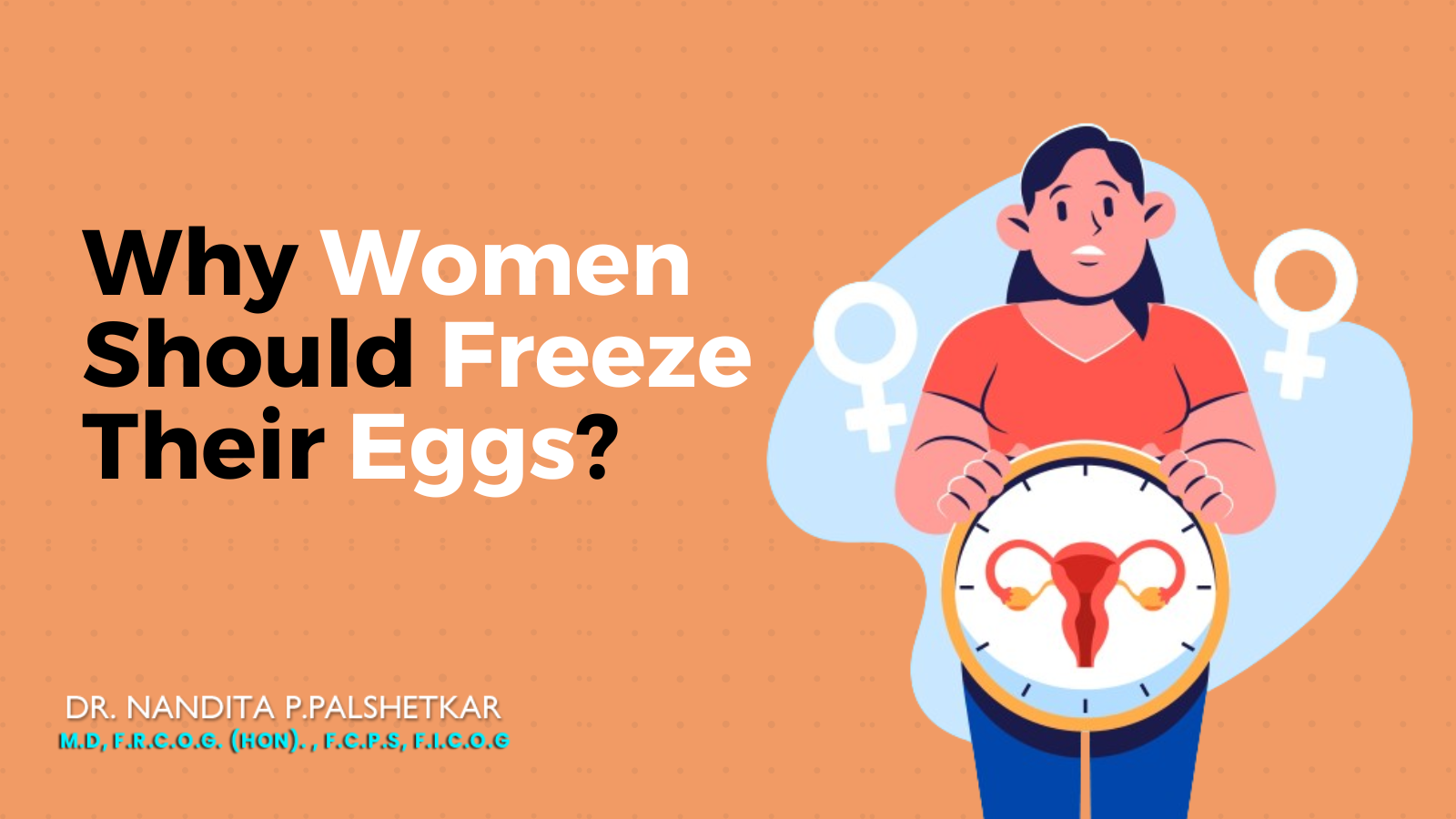

E-Brochure - Download Now!

The biological clock is a relentless metronome. For women balancing careers, relationships, and personal aspirations, the pressure to conform to societal expectations of motherhood can be overwhelming. Egg freezing offers a compelling pause button, a chance to prioritise personal growth without compromising future family dreams. This blog is here to educate you about the process, considerations and benefits of egg freezing.
Egg freezing is becoming popular among women who wish to delay pregnancy due to the following reasons:
Egg freezing offers several advantages for women looking to balance their personal and professional lives with future family plans:
Egg freezing, also known as oocyte cryopreservation, is a fertility preservation method that involves retrieving and freezing a woman’s eggs for future use. The process typically takes about 2 to 3 weeks and involves several steps:
Initially, your doctor will conduct a comprehensive medical examination. This includes recording your medical history and performing blood and hormone tests. A transvaginal ultrasound is essential to assess your follicle count, providing insights into the number of remaining eggs in your ovaries. Based on this evaluation, your doctor will estimate the potential number of retrievable eggs and prescribe the necessary medications to stimulate your ovaries for egg retrieval.
To synchronise your follicles, your doctor might prescribe birth control pills or estrogen-based medications. Subsequent stimulation medications will be more effective due to this synchronization. These medications are usually started during your menstrual cycle or immediately post-ovulation. Regular blood tests and ultrasound scans monitor your progress, ensuring optimal timing for stimulation injections. You will self-administer these injections, typically gonadotropins like follicle-stimulating hormone (FSH) and luteinizing hormone (LH), which stimulate multiple egg production. These subcutaneous injections are administered daily for about 10 to 12 days. Depending on your body's response, medication adjustments might be necessary.
Once the eggs mature, you will undergo a procedure under general anaesthesia to retrieve them. A transvaginal ultrasound-guided needle is used to aspirate the follicular fluid containing the eggs. This process usually takes 10 to 20 minutes.
Within a few hours of retrieval, the eggs undergo vitrification, a rapid freezing process using liquid nitrogen, to preserve them for future use.
The best age for egg freezing is typically between 27 and 34. Fertility begins to deteriorate in the late 20s or early 30s and drops more rapidly after 35. Indian women aged 35-39 experience a further decline in fertility rates, with many facing difficulties in conceiving. According to NFHS-5 (2019-2021), the fertility rate for women in this age group is lower compared to younger women. Younger women tend to have more healthy eggs with higher survival rates, increasing the chances of a healthy pregnancy.
Only you can decide if egg freezing aligns with your life goals. Consider factors like age, career aspirations, relationship status, and financial considerations. Remember, there's no right or wrong answer.
Egg freezing is an invaluable option for women seeking to balance career aspirations, personal goals, and family planning. As fertility naturally declines with age, preserving healthy eggs can provide peace of mind and flexibility for the future. Whether driven by career ambitions, the search for the right partner, or health considerations, egg freezing empowers women to make informed decisions about their reproductive health. If you're considering this path, consult a fertility specialist to understand the process and determine if it's the right choice.
Deciding to freeze your eggs is a personal choice aimed at preserving fertility for the future. Whether for career, partnership, health reasons, or gender transition, understanding the process and timing is crucial. Book an appointment with experienced reproductive health specialist Dr Nandita P. Palshetkar, who can provide valuable insights and help make an informed decision about egg freezing.